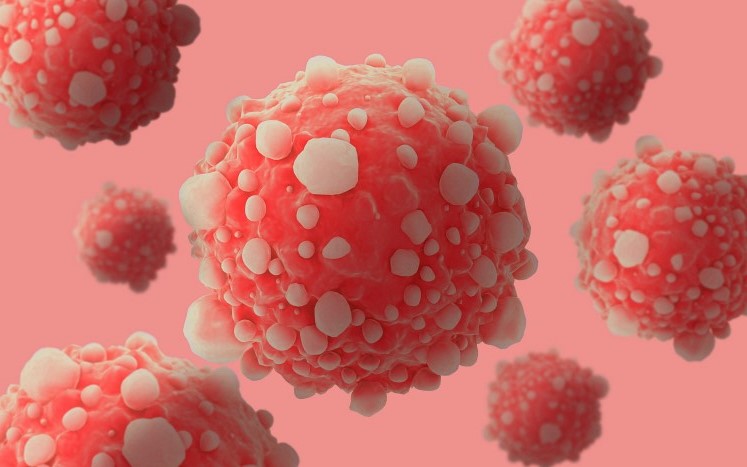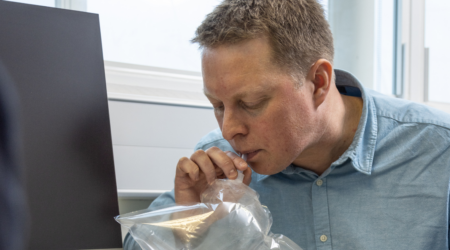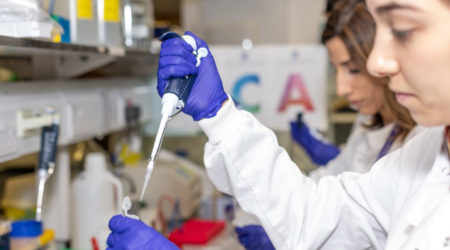

New research shows how pancreatic cancer cells can change their diet to survive
An international research study has shown that pancreatic cancer cells are able to alter the fuel they use to grow and spread to help them survive in difficult environments, a finding that scientists hope could be exploited to develop new treatments for pancreatic cancer.
Pancreatic cancer is the deadliest common cancer, with more than half of people dying within three months of diagnosis, yet treatment options are limited. Currently, the only potential curative treatment of the disease is surgery, but just one in ten patients receive the operation. Providing effective treatment options to everyone affected by pancreatic cancer is crucial in order to improve survival rates.
The study was co-led by a team of scientists at The Institute of Cancer Research, London, headed up by Dr Anguraj Sadanandam, and the University of Michigan in the US. This work, published in Nature today, was funded by Pancreatic Cancer UK, the Ian Harty Charitable Trust and the National Institutes of Health in the US.
What did this research study find out?
Pancreatic cancer tumour cells often grow quickly, helping them to spread rapidly around the body. To do this, they usually rely on the sugar glucose. However, these researchers showed that when glucose is not available, pancreatic cancer cells can change their diet and switch to using a molecule called uridine as a back-up fuel instead.
“This work is hugely novel, potentially very impactful and genuinely exciting. We are very hopeful that these findings could lead to new and improved treatments for pancreatic cancer in the future."
Our Head of Research, Dr Chris Macdonald, explains: “Pancreatic cancer grows aggressively, using glucose found in and around the cells of the pancreas to fuel this rapid growth. This new study has found that pancreatic cancer cells can maintain this rapid growth even once they have burned through all the available glucose stores, by using unique fuel reserves called uridine. In its focus to grow at all costs, this fuel switch may prove to be the pancreatic cancer’s Achilles heel. Crucially, this uridine-dependent growth is not used by normal healthy cells in the body. This study has shown that blocking pancreatic cancer cells from using uridine in this way halts tumour growth in mice.
“This is a very elegant piece of research, which demonstrates how we could use the cancer’s own growth tactics against it, to develop brand new and much needed treatments for people with pancreatic cancer. This work is hugely novel, potentially very impactful and genuinely exciting. We are very hopeful that these findings could lead to new and improved treatments for pancreatic cancer in the future.”
Researchers are now planning to further investigate the potential of blocking the availability of uridine in an attempt to halt the growth of pancreatic cancer cells, which could provide a much-needed new treatment option for this devastating disease.




